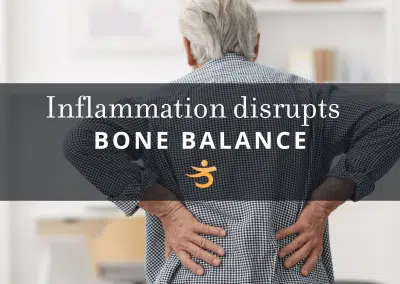There’s been an explosion of research on Vitamin K2 showing how much it affects overall health. When you look at what it says, it makes a pretty good case for why we need more of it.
Here are just three reasons Vitamin K2 may be one of your body’s best friends:
1. Vitamin K2 protects your heart and arteries
There’s a bunch of studies showing Vitamin K2 has benefits for cardiovascular health. Two Dutch studies, one including over 16,000 women, showed that Vitamin K2 decreased risk of coronary heart disease substantially.
Another study showed that 180 micrograms of MK-7 also prevented — and even improved — age-related stiffening of arteries. A 2015 Polish study had similar findings. These studies found that Vitamin K2 is essential to a key protein that inhibits arterial calcification — so we can actively protect our arteries by making sure we get enough K2. This is great news for us all!
2. Vitamin K2 benefits joints
A 2013 study shows that patients with rheumatoid arthritis who took Vitamin K saw reductions in C-reactive protein, which is a marker of inflammation. And a 2015 study in osteoarthritis patients showed that those with better Vitamin K status had less arthritis damage to their joints.
3. So now you’re asking, “What about bones?”
Well, of course there’s plentiful information on Vitamin K2’s role in bone health already — but a couple of good new studies adds to the list. A 2015 Korean study of over 7,000 men and women showed a correlation between Vitamin K2 intake and higher bone density in the spine and femur — one that was especially strong in women. This supports the findings of two earlier studies, one in 2013 and another in 2014, showing that MK-7 supplements decreased bone loss in postmenopausal women’s spine and femur.
It all adds up to one thing: Vitamin K2 isn’t just good for bones. It’s good for bodies.
Looking to supplement? Find our recommended Vitamin K2 supplement in its preferred form (MK-7) here.
P.S. As always we remind you that any form of Vitamin K should not be used by those on the blood thinner known as Coumadin (Warfarin).
References:
Gast GC, de Roos NM, Sluijs I, et al. A high menaquinone intake reduces the incidence of coronary heart disease. Nutr Metab Cardiovasc Dis. 2009 Sep;19(7):504-10.
Kim MS, Kim ES, Sohn CM. “Dietary intake of Vitamin K in relation to bone mineral density in Korea adults: The Korea National Health and Nutrition Examination Survey (2010-2011).” J Clin Biochem Nutr. 2015 Nov;57(3):2237.
Knappen MH, et al. Three-year low-dose menaquinone-7 supplementation helps decrease bone loss in healthy postmenopausal women. Osteoporosis Int. 2013 Sep;24(9):2499-507
Kurnatowska I, Grzelak P, Masajtis Zagajewska A, Kaczmarska M, Stefańczyk L, Vermeer C, Maresz K, Nowicki M. Effect of Vitamin K2 on progression of atherosclerosis and vascular calcification in nondialyzed patients with chronic kidney disease stage 35. Pol Arch Med Wewn. 2015 Jul 15. pii: AOP_15_066. [Epub ahead of print]
Shea MK, Kritchevsky SB, Hsu FC, et al.; Health ABC Study. The association between Vitamin K status and knee osteoarthritis features in older adults: the Health, Aging and Body Composition Study.
Osteoarthritis Cartilage. 2015 Mar;23(3):370-8. doi: 10.1016/j.joca.2014.12.008. Epub 2014 Dec 17.
Yamaguchi M. Osteoporosis treatment with functional food factor: Vitamin K2. J Osteopor Phys Acta 2014;2:e108. doi: 10.4172/2329-9509.1000e108








